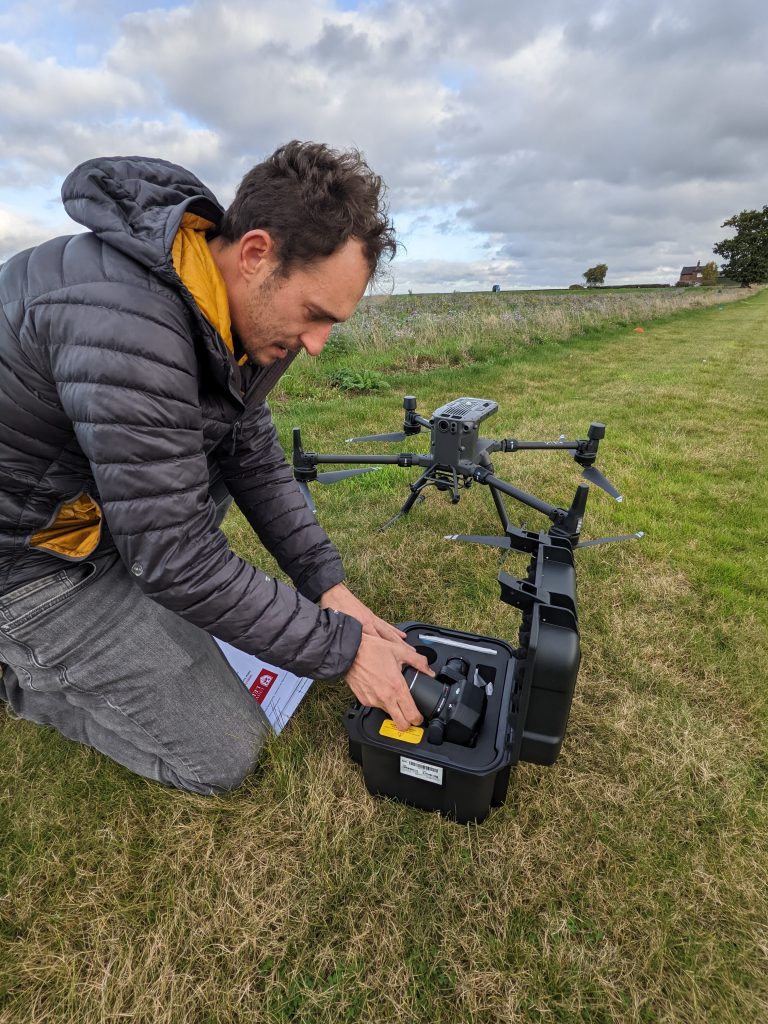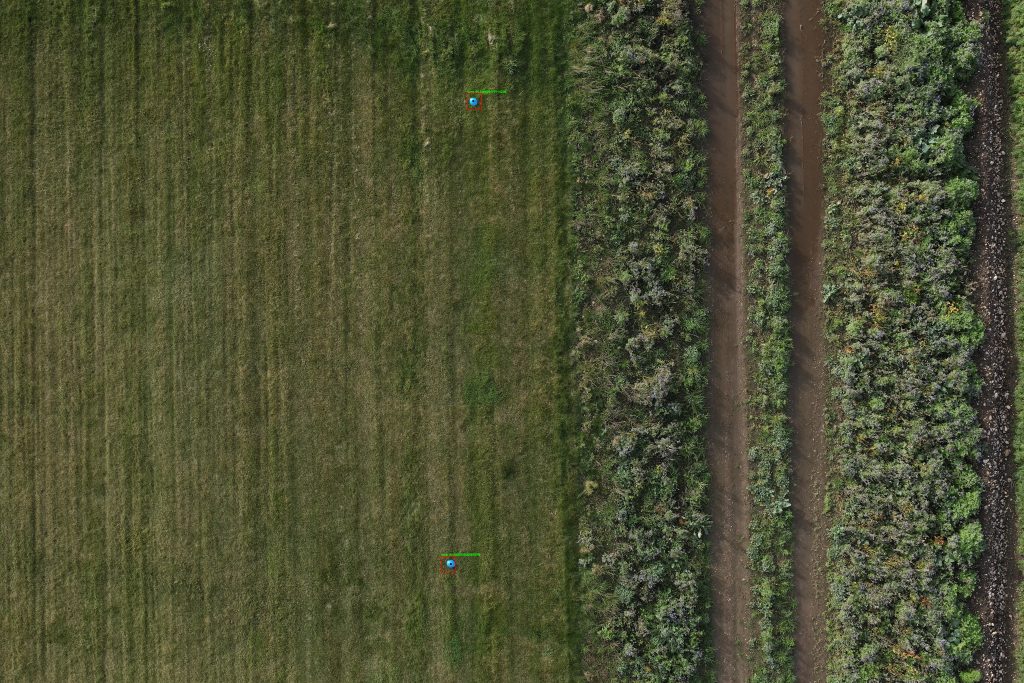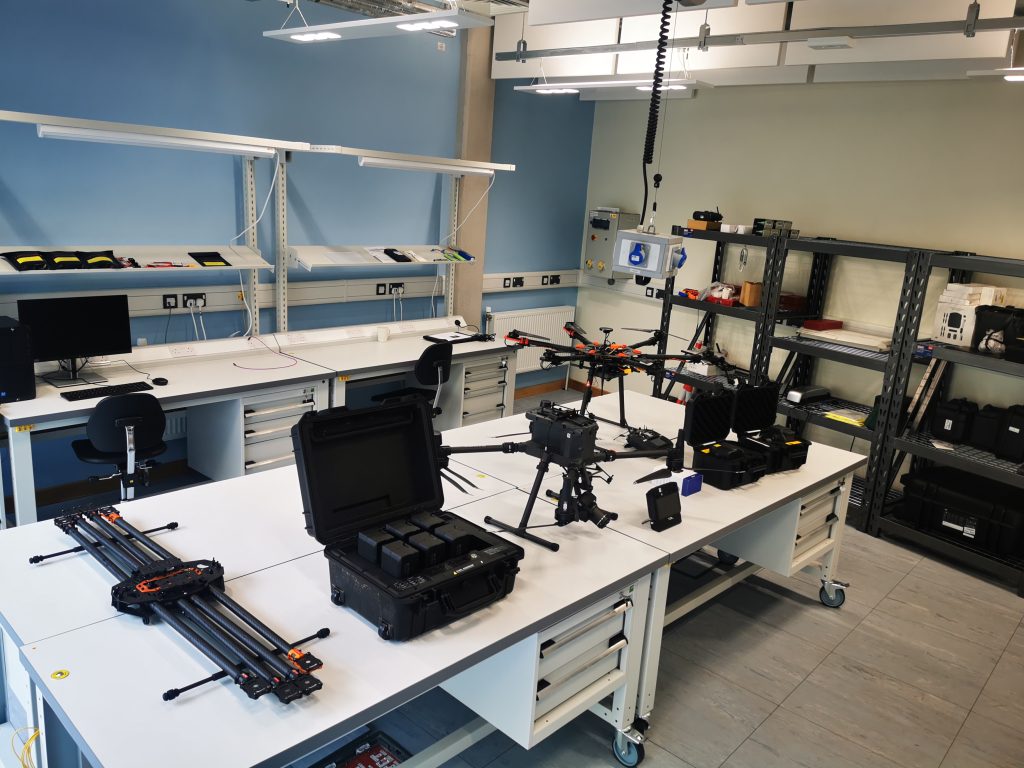Space Park Leicester celebrates first of its kind drone launch
Engineers at Space Park Leicester are celebrating the launch of a drone uniquely equipped with ‘ground-breaking’ AI equipment for use in spacecraft.
The success of the first of its kind launch, for the £100 million research centre, utilises a novel design approach for AI algorithms to be dramatically reduced in size.

Suitable for deployment on embedded computing devices used in satellites, drones, autonomous driving and robotics, this product can be used in cloud detection, disaster, flood, crop, and pollution monitoring as well as situational awareness, spacecraft anomaly detection and maritime surveillance. Now fully operational thanks to joint investment from the University of Leicester, Space Park Leicester, the National Centre for Earth Observation (NCEO) and the National Environment Research Council (NERC), Space Park Leicester’s Drone Lab and equipment is ready to support more pioneering projects in the future.
Principal investigator Professor Tanya Vladimirova from the University of Leicester’s School of Computing and Mathematical Science leads the project with support from Piyal Samara-Ratna, METEOR Principal Engineer, and Oliver Blake, Software and Instrumentation Engineer at Space Park Leicester. The project is funded by the Science and Technology Facilities Council.
Prof. Tanya Vladimirova: “The first flight of this project provided invaluable data to the development of a new high performance and lightweight framework for the use of artificial intelligence algorithms powered by high complexity neural networks, developed by Dr Tolga Turay, a member of my research team.”

Piyal Samara-Ratna added: “This initial flight will lay the foundation for future flights. Each mission and deployment is an opportunity to learn and develop our methods to make flying a drone of this size safe and more efficient.”
He added: “Using drones to test space-based sensor systems and ideas may help reduce costs and the development time associated with using manned flight testing.
“Manned aircraft costs thousands, requires booking weeks, if not months, in advance and if the weather is adverse on the day of the flight the data gathered from deployment may be impacted negatively, resulting in additional flights being required.”
Dr Steven Lloyd, Drone Laboratory Coordinator, said: “Drones provide a unique capability. They fill the gap between ground based and air-based deployments of equipment. So long as we have permission from landowners, we can fly drones when the weather conditions allow, reducing the risk to project timelines from multiple missed deployments from manned aircraft. This deployment was the first of its kind for the Drone Lab at Space Park Leicester, with more flights planned soon.”

Dr Joshua D. Vande Hey from the University of Leicester’s School of Physics and Astronomy and Co-Investigator added: “The drone lab project, funded by the Science and Technology Facilities Council, is now fully operational and is ready to support more amazing projects in the future.”
Viktoria Afxentiou whose PhD is with Professor Tanya Vladimirova and is working on the project, acknowledged the research benefits at Space Park Leicester, she said: “Access to the drone laboratory and engineering capabilities at Space Park Leicester is a fantastic resource to further and maximise the impact of my research.”
The team acknowledge and thank Gareth Bustin and Sittles Flyers Lichfield Airfield for their support in the drone flight campaign.
Space Park Leicester has been designed to support increased collaboration between University of Leicester researchers and educators and the private sector, creating high quality knowledge-based jobs, building the skills base through training, and contributing to economic growth and resilience of the economy.
The project is led by the University of Leicester in partnership with Leicester City Council and the Leicester and Leicestershire Enterprise Partnership (LLEP).
For more information on the Drone Lab, its capabilities, and collaboration involving drones please email Dr Steven Lloyd: sdl18@leicester.ac.uk.


